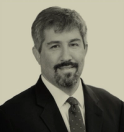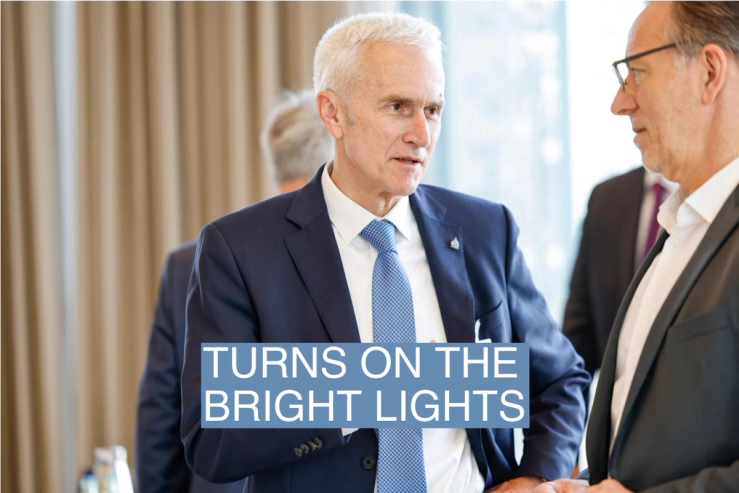The Subject
The U.S. and its NATO allies have shipped over $40 billion in arms to Ukraine since Russia’s full-scale invasion last year. Interpol Secretary General Jurgen Stock is preparing for the risk that these weapons will eventually seep into Europe and conflict zones as far afield as Africa and Latin America.
In an interview with Semafor, Stock said Europe’s recent history shows that weapons deployed in local conflicts, such as the Balkan Wars of the 1990s, inevitably make their way to other battlefields, through either legitimate trade or criminal networks, once the guns go silent.
“You don’t need to be skilled with a lot of foresight capabilities, because that is what we have seen in other theaters around the world,” Stock said.
I sat down with Stock to find out what was driving the work of, essentially, the world’s top cop. A German police officer and academic, Stock has led Interpol since 2014, and is especially concerned about the growing power of transnational criminal syndicates, such as the Sinaloa Cartel in Mexico and Italy’s ’Ndrangheta, to challenge the power of national states, not just in Latin America and Africa, but also Europe. (Last year, Belgium arrested four gang members for attempting to kidnap the country’s Justice Minister.) Stock is pressing for a greater collaboration among Interpol’s 195 members to combat this threat.
Countering the global flow of narcotics, including fentanyl, is also at the top of Interpol’s mandate, said Stock. He explained how Interpol’s headquarters in Lyon, France has quietly provided the U.S. and China a venue to cooperate on the issue, even as their respective governments have sparred over it. “These people are sitting together, and it’s a platform for dialogue and we are talking with each other,” he said.
This interview has been edited for length and clarity.
The Interview
Jay Solomon: What concerns you and Interpol the most right now globally?
Jurgen Stock: Cybercrime, organized crime groups getting stronger and stronger despite all the efforts and all the great success stories we have had, or international law enforcement has had. Most of these criminal gangs — whether they call them gangs, cartels, transnational organized crime groups — are getting stronger and stronger.
Jay Solomon: What’s making them stronger?
Jurgen Stock: There’s a bunch of reasons. But let’s say they are quite flexible, in terms of the crime areas in which they invest. We have seen that [when] we were organizing operations targeting drugs, and we identified on that occasion thousands of firearms. We are organizing operations targeting firearms particularly on that occasion, [and] we seize tons of drugs, different drugs. So, you see how flexible they are.
Jay Solomon: What threats do these criminal syndicates pose to nation states?
Jurgen Stock: Corruption plays a huge role. We see that criminal gangs are investing millions and millions to corrupt officers. This is increasingly undermining the rule of law all across the world, not only destabilizing, let’s say, so-called fragile states that are having certain problems, social problems, economic problems and so on. But even undermining the rule of law and stability in the developed world.
You’ll see more and more violence on the streets. Belgium is an example, the Netherlands is an example, Sweden is an example. Where at the end of such a drug distribution chain, the supply chain, there are fights between groups — Is it my turf? Is it your turf? And more violence on the street intimidating governments. We have seen that in Belgium, where they attempted to kidnap the Minister of Justice. So more open violence against state officials.
Jay Solomon: How do strained relations between the U.S. and China impact the fight against the fentanyl trade?
Jurgen Stock: Interpol is providing a platform again where even if it’s politically difficult, we can at least have a conversation on the Interpol level. We have an enterprise Executive Committee in my Supervisory Body: We have the U.S. represented and we have China represented. So, these people are sitting together, and it’s a platform for dialogue and we are talking with each other. Again, I’m not saying that all the time it leads to immediate, tangible results. But very often, it helps at least a little bit. And it’s better than, let’s say, radio silence.
Jay Solomon: You’ve been raising since last summer your concerns about weapons in Ukraine flooding into Africa and Europe. Can you say more?
Jurgen Stock: You don’t need to be skilled with a lot of foresight capabilities, because that is what we have seen in other theaters around the world. That is still a big concern. And, again, Interpol is providing an opportunity [to stop this]. We have a database where these weapons can be tracked, traced. And we strongly encourage our member countries to use that database to help tracking and tracing these weapons.
Jay Solomon: How successful are policing agencies in seizing illicit money?
Jurgen Stock: How successful are we as a global law enforcement community? The experts are saying, optimistically, 2% to 3% of all the criminal assets. Even that would be more than disappointing. And some experts are saying you’re getting less than 1%, perhaps realistically.
Jay Solomon: How often are criminal syndicates using crypto?
Jurgen Stock: More and more definitely. I don’t have any figures and numbers now, but we see that it’s increasingly being used. I mean, sometimes whenever the central platform is breaking down, there might be a certain reluctance or reorientation, but of course they are using it. They have been using it maybe faster than police could develop its tools at least in law enforcement.
Jay Solomon: Do digital assets provide an opportunity for law enforcement?
Jurgen Stock: It’s a double-edged sword. Right? So in the one hand, of course, you provide criminals opportunities to hide their illegal activities, particularly if they are fast, faster than law enforcement. We also have opportunities to track and trace and investigate if we have the necessary tools. If we have the legal framework.


